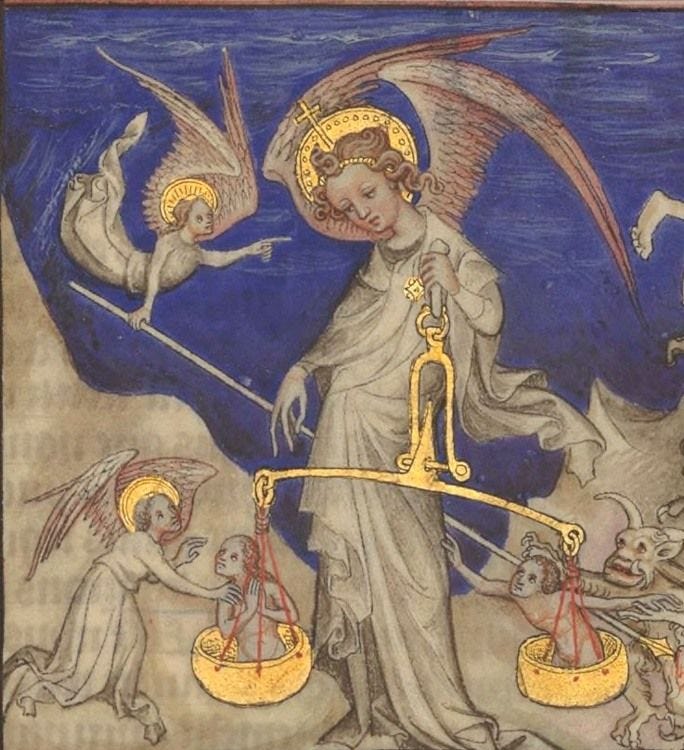
With his good gifts which are in us,
we must obey him at all times
that he may never become
the angry father who disinherits his sons,
nor the dread lord,
enraged by our sins,
who punishes us forever
as worthless servants
for refusing to follow him to glory.
The Rule of Benedict, Prologue Line 6
This is part of an occasional series of meditations on the Prologue to the Rule of Benedict.
Nearing the end of her life, the old woman wanted to make a new will and insisted on disinheriting her son. Her anger was righteous and justified, but I knew it was wrong. She would not be convinced. Finally, I said: that's not what his father would have wanted. She relented.
There was always a tension in this family: the good father who would do anything for his children, and the difficult mother who swung wildly between moods. Without him, life would have been unbearable for their children, but he had been gone many years at the point, and the mediating influence was left for others to fill.
This isn't meant to be an analogy: God the Father is not the bipolar parent while Jesus is the calm one, with the Holy Spirit as the child stuck in the middle. Even if that was a good analogy, I'm pretty sure it's about five different heresies at once.
Rather, it's an attempt to get at Benedict's image of an angry father who disinherits his sons: a dread lord visiting punishment upon worthless children for our sins. It's an unpleasant image for modern man, who has become so used to some portions of the scripture--the God of love and mercy--that he ignores other portions--the God of justice.
That's why Benedict pairs them: his good gifts are in us. A child is the image of his parents, and we are made in the image of our Father, and baptized into his life. In that baptism, his good gifts are planted deep in our hearts, in rich soil, and we are given but a single task, as Adam and Eve were before us: to keep and to tend it. Our first parents couldn't do even that much, and so their inheritance, and ours, was taken away.
And then, in act of overwhelming love, it was given back. The gates of the Father's world were thrown open again. The sons and daughters who had squandered the soul's inheritance were washed clean in the rivers of salvation. The dread Lord forgave His children, and called us to follow Him to glory.
What the Rule is making clear is that God does not want to punish us forever. The Paschal Mystery restores our inheritance to us. It's a free gift, and it's ours to lose.
Prayer
Father, give us the strength to cooperate with the gift of grace of you give us in the sacraments, that we may always seen to find and do your will in all things.
Meditation
Christ’s sacrifice brought us back into the family of God, and gave us a divine inheritance: eternal life with the Father. We know his will. He has taught us his way. And yet we struggle to follow that way at all times, and risk losing the great gift He has given us. How can we more consistently align our will with God’s will for us, so that we may never risk such a loss?




